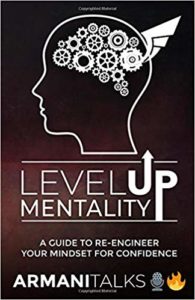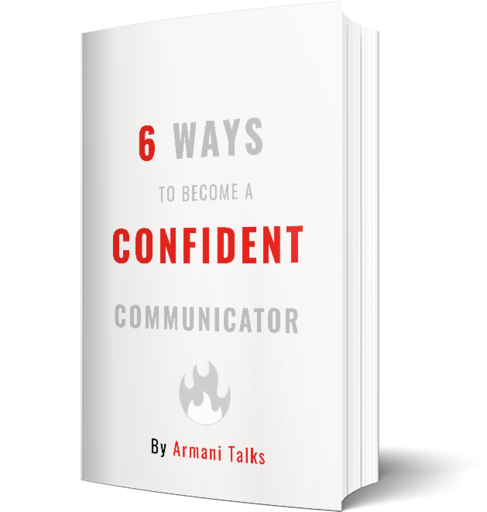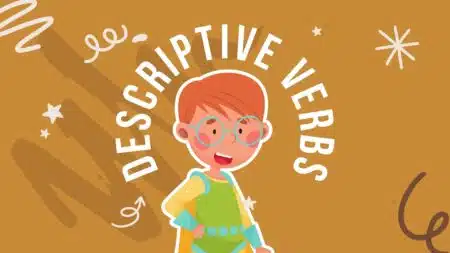Critical Thinking vs. Logical Thinking
What's the difference.
Critical thinking and logical thinking are both important skills that involve analyzing information and making informed decisions. Critical thinking involves evaluating arguments and evidence to determine the validity of a claim or statement. It requires questioning assumptions, considering alternative perspectives, and recognizing biases. Logical thinking, on the other hand, focuses on using reasoning and evidence to draw conclusions and make predictions. It involves following a systematic process of thinking to ensure that conclusions are based on sound reasoning. While critical thinking emphasizes questioning and evaluating information, logical thinking emphasizes the process of reasoning and drawing logical conclusions. Both skills are essential for making well-informed decisions and solving complex problems.


Further Detail
Introduction.
Critical thinking and logical thinking are two important cognitive processes that play a crucial role in problem-solving, decision-making, and overall intellectual development. While they are often used interchangeably, there are distinct differences between the two. In this article, we will explore the attributes of critical thinking and logical thinking, highlighting their unique characteristics and how they contribute to our ability to analyze information and make informed judgments.
Critical thinking is the process of actively and skillfully conceptualizing, applying, analyzing, synthesizing, and evaluating information gathered from observation, experience, reflection, reasoning, or communication. It involves questioning assumptions, recognizing biases, and considering multiple perspectives before arriving at a conclusion. Logical thinking, on the other hand, refers to the process of using reasoning consistently to come to a conclusion based on available information. It involves identifying patterns, making connections, and drawing inferences in a systematic and rational manner.
Attributes of Critical Thinking
One of the key attributes of critical thinking is the ability to think independently and objectively. Critical thinkers are able to assess information without being swayed by emotions or personal biases. They are also adept at identifying logical fallacies and inconsistencies in arguments, allowing them to make sound judgments based on evidence and reasoning. Additionally, critical thinkers are open-minded and willing to consider alternative viewpoints, which helps them avoid confirmation bias and make more informed decisions.
- Independent and objective thinking
- Identification of logical fallacies
- Open-mindedness and consideration of alternative viewpoints
Attributes of Logical Thinking
Logical thinking is characterized by a systematic approach to problem-solving and decision-making. Logical thinkers are able to break down complex issues into smaller, more manageable parts, allowing them to analyze each component individually before drawing conclusions. They also excel at recognizing cause-and-effect relationships and understanding how different variables interact with one another. Furthermore, logical thinkers are skilled at using deductive and inductive reasoning to arrive at logical solutions to problems.
- Systematic approach to problem-solving
- Recognition of cause-and-effect relationships
- Proficiency in deductive and inductive reasoning
Relationship Between Critical Thinking and Logical Thinking
While critical thinking and logical thinking are distinct processes, they are closely related and often work in tandem to enhance our cognitive abilities. Critical thinking provides the framework for evaluating information and making informed judgments, while logical thinking helps us organize and analyze that information in a systematic and rational manner. Together, they form a powerful combination that allows us to approach problems and challenges with clarity, precision, and objectivity.
Application in Real-Life Scenarios
Both critical thinking and logical thinking are essential skills that have practical applications in various aspects of our lives. In academic settings, critical thinking is crucial for analyzing complex texts, evaluating arguments, and formulating well-reasoned responses. Logical thinking, on the other hand, is valuable in fields such as mathematics, computer science, and engineering, where problem-solving requires a systematic and logical approach. In professional settings, both skills are highly sought after by employers who value employees who can think critically, solve problems efficiently, and make sound decisions based on evidence.
In conclusion, critical thinking and logical thinking are two distinct but complementary cognitive processes that play a vital role in our ability to analyze information, make informed judgments, and solve complex problems. While critical thinking focuses on evaluating information and considering multiple perspectives, logical thinking emphasizes the systematic and rational analysis of that information. By honing both skills, we can enhance our cognitive abilities, improve our decision-making processes, and approach challenges with clarity and objectivity.
Comparisons may contain inaccurate information about people, places, or facts. Please report any issues.
Critical Thinking vs Logical Thinking: What’s the Difference?
- Armani Talks
- June 25, 2022
- Confidence & Mindset
There’s some confusion between critical thinking vs logical thinking.
People think they are the same.
But that’s not the case.
Thinking they are the same is an honest mistake.
They seem similar at first glance.
However, in this article, we are going to share the clear distinction between the 2.
Not only are you going to learn the distinction, but I’m also going to give you a funny real-world example highlighting the difference.
By understanding the basics, you will improve logical thinking and critical thinking.
Without further ado, let us begin.
The Difference Between Logical Thinking and Critical Thinking
Logical thinking is potential energy. Critical thinking is kinetic energy.
Logical thinking is a series of:
- ‘Because of this, this happened’ connections.
Critical thinking is a series of:
- ‘If I do this, this will happen’ connections.
For logical thinking, you don’t always need to get your hands dirty.
But with critical thinking, you always need to get your hands dirty.
You’ll see a lot of people who make logical sense when they talk.
But when it comes to taking action, they act like a dufus.
Any idea why?
‘No… why?’
It’s because they haven’t gotten their hands dirty (take action).
They use someone else’s logic to fuel their thinking.
Although this strategy is not harmful…
It does not lead to supreme intelligence.
Secret Ingredient of Critical Thinking
‘I sort of see what you are saying Armani, but the difference is not solidified yet.’
All good. We will solidify the difference shortly with an example.
But before I give the example, I want to talk a bit more about critical thinking.
There is a special ingredient in all critical thinkers.
Can you guess what it is?
‘Uh… a high IQ score?’
No. The special ingredient is desire .
‘Desire?? That sounds like an emotional intelligence word. Why are you using it in this article for?’
It’s because desire is the precursor to experimentation. And experimentation is the precursor to critical thinking.
Have you ever seen one of those pictures of an iceberg before?
The one where you see the tip, and the rest of the berg is submerged under water?
Like this….

Normally this image is used to talk about the myth of an overnight success.
Today, I would like to help you perceive this iceberg in another light.
Critical thinking is the tip of the iceberg.
But what is submerged underwater is desire.
Allow us to transition to the example right now.
Example of the Smelly Breath
You ever had that moment when you needed toothpaste, but ran out?
‘Yea, plenty of times.’
Go back to that moment.
It’s 5 am in the morning.
You’re waking up so early because there is going to be a cute mail woman delivering the mail.
Your breath smells awful.
You’re running low on toothpaste.
And all the convenient shops around you are closed.
So, you go to the toothpaste tube and try to squeeze it.
At this moment, the desire is pretty low to get the toothpaste.
At the back of your mind, you’re thinking:
‘I doubt I’m going to get any paste. I should probably wait until the stores open.’
You squeeze the tube like a wimp.
You’re about to quit with your experimentation.
Then suddenly, the image of the cute mail woman pops up.

‘I can’t possibly greet her with this stinky breath! I must get the toothpaste out.’
Desire is rising.
Now you begin getting crafty.
The experimentation is becoming more dynamic.
You’re no longer squeezing the tube like a wimp.
There is intention.
You move your hands to the middle of the tube, not just the top.
When you squeeze the middle, you see a bit of paste show its face, but it goes into hiding once you try to put it on your brush.
At least you’re on the right track!
You begin moving your hands down the tube.
From your experimentation, you see that pressure is king.
When you squeeze from the bottom, you get more pressure.
Not only that, you begin twisting the bottom of the tube in a circular motion.
Now the pressure is at an all-time high.
TOOTHPASTE BEGINS FLOWING OUT!!
You needed 1 squirt.
You now have enough for 5 squirts.
The trip to the convenience store has been saved for another day.
Now you get to greet the cute mail woman as the best version of you.
Breakdown of the Experiment
What did I say critical thinking was?
‘You said it was a series of, if I do this, this will happen, connections .’
Correct. And that’s exactly what you did in the example above.
You had desire, otherwise, the experimentation would not have happened.
From the experimentation, you collected a bunch of data.
Learning from the data led to the insight of the importance of pressure.
Applying the pressure gave you the toothpaste.
The final rundown of the experiment was:
- If I run low on toothpaste, I can use pressure to my advantage.
- If I use the pressure, then I will get more paste.
- And if I need more pressure, then I will go straight to the bottom of the tube.
What are the 3 bullets above showing?
‘It’s a series of, because of this, this happened, connections.’
What are those connections called?
Correct, you were paying attention!
Be a Doer AND a Thinker
The problem with today’s society is that very few people experiment.
They lack guts.
Due to their lack of guts, they parrot other people’s experimentations, logic, and ideas.
But a rare few are rolling up their sleeves and getting their hands dirty.
They do this because they have the desire.
Desire is built from a compelling vision.
From that desire, they experiment.
They analyze the data.
They build critical thinking skills.
Then they cultivate sharp logic born from first-hand experiences.
I call that having skin in the game.
One great way to solidify critical thinking and logical thinking is by writing essays.
Essays allow you to make eye contact with your mind and see the elegant connections.
Are you curious about learning the craft of essay writing?
If so, then be sure to check out my Essay Writing for Dummies Class !
In this class, you will learn:
- How to write essays.
- Frameworks to chug out essays quickly.
- What to write about.
- How to build an essay writing practice.
And plenty of other topics!
– ArmaniTalks
Join the armanitalks newsletter, level up mentality : a guide to re-engineer your mindset for confidence.

BUY ON AMAZON

Leave a Reply Cancel reply
Your email address will not be published. Required fields are marked *
Save my name, email, and website in this browser for the next time I comment.

Join the ArmaniTalks 🎙️🔥 Newsletter
Download free.

Privacy Overview

ELI5 The Difference Between Logical Thinking And Critical Thinking
The origins of logical thinking and critical thinking are close in time. Philosophers and theorists like Piaget and Dewey have talked about each of them differently, evaluating each of the thinking’s broad characteristics . However, one thing which is common among such theorizing is the discussion of specific dispositions and habits that such thinkers possess.
Even though critical thinking and logical thinking go far back in time, the differences are still very overlapping and not fully explored by contemporary research. And even if there are, not many people can correctly distinguish between the two. Whether critical thinking and logical thinking are the same or whether they have the same underlying processes, let’s explore them below.
The blog dives deeper into the root-level differences between those high-order cognitive functions alongside their examples.
What are the basic differences between Logical Thinking and Critical Thinking?
Logical Thinking and critical thinking are often used interchangeably today. However, both are higher-order cognitive skills needed for efficient functioning. Critical Thinking , as proposed by John Dewey, is reflective thinking. According to him, critical thinking involves careful consideration of a belief or information as per their supporting evidence. Dewey elaborated on the five phases in which critical thinking is undertaken:

(i) taking suggestions, which are more solution-oriented
(ii) intellectualization of the difficulty, or turning the problem into a question for which answers are to be found
(ii) hypothesizing, or coming up with tentative answers to the problem
(iv) mental elaboration of these tentative answers or hypotheses, logical reasoning
(v) putting the hypothesis to test in reality or imaginatively
For him, critical thinkers possess some distinct dispositions, however, each individual has them at differing levels too.
- Attentiveness
- Habit of Inquiry
- Self-confidence
- Willingness to suspend judgment
- Trust in reason
- Seeking the truth
Dewey and several other researchers consider logical thinking to be an important phase in the critical thinking phase. Logical argumentation or reasoning is crucial to the study of critical thinking. Hence, both rationality and logical reasoning are the pillars of the process of critical thinking. Logical thinking engages itself with the correctness or incorrectness of a value or belief, using patterns and connections between concepts.
So, while critical thinking wants to rely on skepticism and open-mindedness, logical reasoning binds itself with previously given facts and draws inferences and conclusions. And even though the process of critical thinking is vast enough to include 3 more phases, the 2nd last phase comprises all the processes involved in logical thinking.
Is one more advantageous than the other?
Skepticism is the cornerstone of all critical thinking work, whereas evaluating the arguments arising out of this skepticism is a work of logic. Critical thinking isn’t just a mental ability, it becomes a habit, and the intellectually gifted are the ones who indulge in it more often. Logical reasoning, on the other hand, needs to be practiced by all of us most of the time.

If accessibility is concerned, logical reasoning can be regarded as the more accessible branch of the brain. Using past patterns to derive conclusions is what all of us do on a regular basis, but introspecting, hypothesizing, and then carrying out the work to check a concept’s truthfulness that’s not something that can be done regularly.
Critical thinking also involves more disagreements with others, as the use of skepticism is central to this thinking ability. Logical thinking, on the other hand, tries to find connections that make it a much smoother and socially desirable form of inquiry.
The downsides of both the thinking modules explained
Critical thinking and logical thinking are considered to be superior to all forms of mental operations. This leads to a bias in our own thinking. Here are some downsides of the two:
Overly critical – Both logical thinkers and critical thinkers are taught to question and practice skepticism, which sometimes leads to heavy reliance on the critical mindset. A critical mindset promotes rationality at the cost of optimism and completely focuses on the negatives rather than taking a neutral approach.
Sidelining of emotions – The right hemisphere of the brain is involved with more emotional processing, and the left thinkers completely chuck out emotions when making decisions. Emotions can provide great guidance during important matters but are often overlooked due to the unnecessary criticism they get from critical and logical thinkers. In the present time, emotional intelligence is considered to be an important component of critical thinking.
Perfectionism – Perfection is a myth; however, for a critical thinker, this pattern of thinking becomes a lifestyle and involuntary behavior. Often individuals with perfectionist tendencies are dealing with an overly critical inner self and lack of satisfaction with themselves. Perfectionism leads to hypercriticism, which is the price most brilliant minds pay.
Is there any difference in usage?
Critical thinking and logical thinking are controlled by the same parts of the brain – the left hemisphere. Both are important higher-order cognitive skills that one needs for survival. Even though logical thinking is a part of critical thinking, individuals resort to logical thinking on a daily basis. As it just involves the analysis of facts and deduction based on them, logical thinking is far more widely practiced than critical thinking.
Many people, in order to save mental effort, use logical reasoning rather than the initial 3 phases of critical thinking given by Dewey. While scientists, when engaged in a scientific inquiry, follow all the phases of critical thinking, lawyers heavily rely on logical reasoning. Neither of them is wrong; with different professional demands, different cognitive processes are put to work.
Differentiating through examples
Can an individual be both a logical and a critical thinker .
As per the classic theory of critical thinking, for a person to be a critical thinker, logical reasoning is a necessary prerequisite. But can the same be said for a logical thinker? Absolutely! Logical thinkers and critical thinkers are not born with this manner of thinking, they are shaped through daily-life encounters.
The present education reforms encourage critical thinking and just like John Dewey, consider critical thinking to be the ultimate goal of education. But what about logical thinking?
Due to the overlapping nature of the two, a logical thinker is made out of a critical thinker. In the paper [ 1 ] by Steven D. Schafersman, logical thinking as a skill constitutes the critical thinking ability that can be imparted to students through formal education.
Critical thinking is an over-arching term for a range of mental operations, under which falls logical thinking or reasoning. While logical thinking can be practiced independently of critical thinking, both of them exert crucial influence on each other. At the same time, the former is often more stressed upon as people think that it can be hampered amongst kids and individuals with learning disabilities , however, Critical thinking is a larger process than logical thinking, and one can definitely improve on their critical thinking and logical reasoning abilities at any age.
- D. Schafersman, S. (1991, January). AN INTRODUCTION TO CRITICAL THINKING .
An engineer, Maths expert, Online Tutor and animal rights activist. In more than 5+ years of my online teaching experience, I closely worked with many students struggling with dyscalculia and dyslexia. With the years passing, I learned that not much effort being put into the awareness of this learning disorder. Students with dyscalculia often misunderstood for having just a simple math fear. This is still an underresearched and understudied subject. I am also the founder of Smartynote -‘The notepad app for dyslexia’,
Leave a Comment Cancel reply
You must be logged in to post a comment.

Theresa Reviews
Your Recipe for Balanced Living
Logic vs. Critical Thinking: A Comparative Analysis

We all face complex problems daily. Sound reasoning is key to solving them, but many struggle to effectively apply logical and critical thinking skills.
We’re here to help you sharpen your mental toolkit. In this post, we’ll break down the differences between logic and critical thinking, showing you how to use both for better decision-making.
You’ll learn the unique strengths of each approach when to apply them, and how they work together. By the end, you’ll clearly grasp these essential skills and be ready to tackle any challenge confidently.
Let’s get started on this path to smarter problem-solving!
What is Logical Thinking?
Logical thinking is a method of reasoning that uses a structured, rule-based approach to reach conclusions. It’s a valuable skill that helps us make sense of information and solve problems consistently.
This type of thinking is crucial in fields where precision and accuracy are key. It allows us to follow a clear path from premise to conclusion, ensuring our decisions are based on solid grounds.
When we think logically, we create a mental map of ideas and how they connect. We start with known facts or premises and then use established rules of logic to conclude. This process helps us avoid errors in reasoning and arrive at reliable outcomes.
Examples of Logical Thinking in Action
Let’s look at some real-life examples of logical thinking:
- When solving math problems, we use logical steps to reach the correct answer. For instance, when solving an algebraic equation, we follow a series of logical steps to isolate the variable and find its value.
- Coders use logical thinking in computer programming to create algorithms and debug their code. They must consider all possible scenarios and outcomes, using if-then statements and other logical constructs to ensure their programs function correctly under various conditions.
- Scientific experiments also rely on logical processes to test hypotheses and draw conclusions from data. Scientists design experiments with control groups and variables, interpret results using statistical analysis, and draw logical conclusions based on their findings.
- In everyday life, we might use logical thinking when planning a trip. We consider budget, time constraints, and personal preferences to make rational decisions about transportation, accommodation, and activities.
What is Critical Thinking?
Critical thinking carefully examines, analyzes, and evaluates ideas to form well-reasoned judgments. It’s about digging deeper, questioning assumptions, and considering multiple perspectives. It questions assumptions, meaning we don’t take things at face value but examine the underlying beliefs. This involves asking probing questions like “Why is this true?” or “What evidence supports this claim?”
This skill is essential today where we’re bombarded with information from various sources. Critical thinking helps us navigate this complexity and make informed decisions.
Critical thinking also involves metacognition – thinking about our thinking. We reflect on our thought processes, biases, and assumptions, which helps us improve our reasoning skills over time.
Examples of Critical Thinking in Action
Let’s look at some real-life examples of critical thinking:
- Critical thinking plays a crucial role in many real-world scenarios. We analyze arguments, spot logical flaws, and construct persuasive counterarguments when participating in debates. This requires us to think on our feet, evaluate evidence quickly, and articulate our thoughts clearly.
- Tackling ethical dilemmas requires weighing different moral considerations to make tough decisions. For example, a doctor facing a complex medical case might need to balance the potential benefits of a treatment against its risks, considering factors like quality of life, patient wishes, and medical ethics.
- Critical thinking is essential for strategic planning and decision-making in the business world. Managers must analyze market trends, assess risks, and anticipate potential outcomes to make informed choices about their company’s direction.

Key Differences Between Logical and Critical Thinking
Logical thinking emphasizes following set procedures. It’s like following a recipe—you follow the steps to get the expected result.
On the other hand, critical thinking is more about examining and questioning these steps. It asks, “Why are we doing this? Is there a better way?”
The process of logical thinking is like a straight line. You start at point A and move step-by-step to point B. It’s predictable and follows a clear path.
Critical thinking, however, is more like exploring a maze. You might try different routes, backtrack, or even create new paths as you go. It’s flexible and changes based on what you find along the way.
3. Objective
Logical thinking aims to find the right answer. It’s like solving a math problem – there’s usually one correct solution.
Critical thinking, on the other hand, is more interested in the bigger picture. It asks questions like “Is this information reliable?” “Is this fair to everyone involved?” and “What are we not seeing here?” It’s not just about finding an answer but understanding the question and its context.
How Logical and Critical Thinking Can Complement Each Other
When used together.
Combining logical and critical thinking leads to well-rounded decisions. Think of it like building a house. Rational thinking is like following the blueprint – it ensures everything is in the right place and constructed correctly. Critical thinking is like being the architect – it helps you design the best house for your needs, considering factors like the environment, lifestyle, and future changes.
For example, when solving a complex problem, you might use logical thinking to break it into smaller, manageable parts and solve each step. Then, you’d use critical thinking to step back, look at your solution, and ask if it addresses the core issue or if there might be a better approach.
Real-Life Example
Let’s say you’re making a big business decision, like whether to launch a new product. You’d use logical thinking to analyze sales data, production costs, and market research. This gives you a solid foundation of facts and figures.
Then, you’d switch to critical thinking to consider less tangible factors. You might ask How this product might affect our brand image. What could our competitors do in response? Are there any potential ethical concerns? What economic or social trends might impact the product’s success?
Using both types of thinking, you can make a data-driven decision considering the broader context and potential future scenarios.
As we wrap up our logical and critical thinking exploration, we’ve seen how these two approaches shape our problem-solving skills. Each has strengths: logical thinking offers structure and precision, while critical thinking brings depth and flexibility.
In our daily lives, we often need both. Logical thinking helps us navigate structured tasks, while critical thinking allows us to tackle complex issues and ethical dilemmas.
By understanding and applying both methods, we can make more informed decisions and solve problems more effectively. It’s not about choosing one over the other but knowing when and how to use each.
Remember, developing these skills takes practice. As you face challenges, consider which approach might serve you best. Over time, you’ll naturally blend logical and critical thinking for optimal results.
Leave a Reply Cancel reply
Your email address will not be published. Required fields are marked *
Save my name, email, and website in this browser for the next time I comment.
Post Comment
Related Posts

57 Basic Color Names Used in Everyday Life

131+ Powerful Descriptive Verbs to Elevate Your Writing

The Ultimate List: 114 Adjectives for Describing Appearances
Begin typing your search above and press return to search. Press Esc to cancel.

- Search Search Search …
- Search Search …
Thinking Vs. Critical Thinking: What’s the Difference?

Thinking and critical thinking do not sound that different in nature. After all, they both include the verb thinking, and therefore, imply that some form of thinking is taking place. If you find yourself wondering, what is the difference between thinking vs critical thinking, you have had an excellent thought.
According to the Cambridge Dictionary, thinking is what we do when we are considering things with our minds. Critical thinking takes things a bit further. Critical thinking is when we push our feelings and our emotions out of the way so that we can carefully focus on a specific topic.
Going back to your question. When you thought, what is the difference between thinking and critical thinking and you began to weigh the difference, you were performing the action of critical thinking! Let’s take some time to dig further into the differences in thinking and critical thinking.
What is Thinking?
Thinking is an action. The action that is required to produce thoughts. Whether we are thinking about what we want to eat for lunch, the color green, or how cute a baby pig in rainboots looks, all of these thoughts are produced in our minds through the process and action of thinking.
There are many things that can lead to thinking. If you are walking down the street and pass a bakery and you smell the sweet smell of apple pie and you think about being in your grandma’s kitchen, this process of thinking is initiated by something called stimuli.
Stimuli are basically anything in the environment that we interact with using our five senses. That means when we hear, touch, see, smell, taste, or feel something, we are interacting with various stimuli.
Have you ever laid in bed trying to go to sleep, but you kept thinking about the pile of papers you left on your desk or the long to-do list you have waiting for you tomorrow? You may be thinking too much because you are stressed or simply because it is difficult for you to turn off your brain, so to speak, at night when it is time to sleep.
What is Critical Thinking?
Generally speaking, critical thinking is a broad category of deeper-level thinking skills used to complete specific tasks. This includes things like analyzing situations, solving problems, comparing and contrasting, and drawing conclusions based on a given set of data.
Since critical thinking goes beyond the basic formation of thought that we do hundreds if not thousands of times a day, it is considered a skill that must be practiced. This is why students study things in school like problem-solving, critical analysis, and how to compare and contrast different things.
Though critical thinking in its most basic form can come naturally, in order to really master and feel comfortable with various aspects of critical thinking, we must learn about the different processes involved in critical thinking. Then we can more confidently apply these individual thinking skills that fall under the umbrella term of critical thinking.
Why do We Use Critical Thinking?
There are many reasons we use critical thinking. One of the biggest reasons you will often hear from employers is problem-solving. Critical thinking is crucial in being able to problem solve, and many companies are seeking people who are capable and comfortable with working through and solving problems.
When you collect information through your senses and use that information to form conclusions, for example, if you go outside and the sky is gray, the air smells sweet and feels damp. You can most likely form the conclusion that it is going to rain soon. Though this seems like a simple thought, it uses critical thinking.
We all have opinions, and when we meet someone with a different opinion, we use critical thinking skills to form arguments . We take our knowledge of a particular subject and logically piece together an argument that supports our opinion of that subject. This can be something a simple as whether pineapple belongs on pizza or something more complex like the causes of global warming.
Even people who do not consider themselves to be good at arguing can still learn to improve the critical thinking skills needed to be a better arguer.
There are just a few of the major uses for critical thinking in our daily lives, and each use requires a different set of critical thinking skills .
5 Everyday Critical Thinking Skills
There are more than a dozen different critical thinking skills ranging from analyzing to critiquing. Oftentimes, we use multiple critical thinking skills at one time.
For example, when you are shopping, you evaluate the quality of a product by reading customer reviews, but you will also compare prices at different stores, and you may even compare and contrast different brands of the same type of item.
Let’s talk about five of those critical thinking skills that you likely use every day without even thinking about it.
Comparing and Contrasting
When you look at two or more things and decide what is similar and what is different between them, you are using the critical thinking skills of comparing and contrasting. We do this when we look at universities or job options. We look at the majors that are offered or the benefits that come with the job to see how they are similar and different.
In school, we are taught to compare and contrast different things in the form of an essay, but we have to first critically think through the similarities and differences before we can write the essay.
Forecasting
The person on the television is not the only person who is capable of predicting or forecasting possible future events. If you work in real estate or you hold stakes in the stock market, you make decisions on whether to buy or sell based on what you believe will happen in the future.
If you believe the housing market is going to crash, you sell while you can to get the most for your money. If you believe a particular stock is going to increase in value in the future, you buy now while the prices are low.
We also practice forecasting when we make our 5-year plans or even just think about what we might do over a long weekend. Forecasting can be as simple as that, or it can be much more in-depth, like predicting the weather or changes in the stock market.
When you practice the critical skill of reasoning, you are thinking in a way that is logical. Maybe you are trying to figure out the best way to get home during rush hour traffic, or you are trying to choose between which subway routes you could take to get to your destination. These both require trying to figure out how to do something logically.
Though we may not be movie or food critics professionally, it is human nature to critique things. Though the critical thinking skill of critiquing usually goes much deeper than deciding whether your meal was delicious or not, you still critique things in your daily life.
If you have ever seen a movie and had an in-depth discussion with someone about the good and the bad parts of the movie or talked about the storyline or the acting, you were critiquing.
Have you ever decided that you wanted to buy something online like a computer or a new pair of shoes? Most of the time, when we shop online, we will look at different websites to check customer reviews. Even if you just glance at a product’s star rating or look at the available features for a specific product, you are evaluating the overall product before you decide to purchase.
Similarities and Differences
It is a general belief that every person is capable of thinking. However, the skills of critical thinking take practice. This does not mean some people are incapable of critical thinking. It only means that it may be more difficult for some than others.
The easiest way to explain the similarities and differences between thinking and critical thinking is this: Critical thinking is a form of thinking, but not all thinking is critical thinking. This means that when you form a thought, no matter how simple or complex it may be, you are performing the act of thinking.
On the other hand, when you are in deep thought, usually about a single subject, and are using one or more of the many skills listed above, you are performing the act of critical thinking, which is still thinking but deeper.
If you want to challenge yourself to go beyond just thinking and reach a level of critical thinking, keep pondering questions like what is the difference between thinking and critical thinking? Questions like these will naturally push you to use your critical thinking skills . As you further develop your ability to think critically, you will find that other skills like problem solving and brainstorming come more easily to you.
Difference Between Thinking and Critical Thinking
Critical Thinking vs. Creative Thinking
You may also like

Divergent Thinking vs Brainstorming: How to Use These Techniques to Get Better Ideas
We often get used to doing things a certain way, because it’s fast or convenient or “it’s always been like this.” Even […]

Best Ted Talks on Critical Thinking: Top Picks for Insightful Perspectives
Critical thinking is an essential skill in today’s fast-paced world, where making informed decisions is crucial for success. TED Talks, renowned for […]

Critical Thinking and Modern Media: Methods for Finding the Truth
In today’s digital age, determining what is true in the media has become a major challenge. With the rise of fake news […]

The Connection between Critical Thinking and Ethics: Unraveling the Link
The connection between critical thinking and ethics is a significant one, as both concepts play crucial roles in decision-making and problem-solving. Critical […]
Difference between logical reasoning and critical thinking

gical reasoning and critical thinking are closely related but have distinct characteristics:
Logical Reasoning: Logical reasoning is the process of using rational thinking to draw conclusions from premises or evidence. It focuses on the structure of arguments, ensuring that they are valid and sound. Logical reasoning involves identifying and evaluating the logical connections between ideas. It is more about the form of the argument rather than the content.
Critical Thinking: Critical thinking is a broader concept that encompasses logical reasoning. It involves actively and skillfully conceptualizing, applying, analyzing, synthesizing, and evaluating information to reach an answer or conclusion. Critical thinking goes beyond just logical structures; it also considers the relevance, accuracy, and fairness of the arguments and evidence.
In essence, logical reasoning is a part of critical thinking, which includes additional skills such as creativity, problem-solving, and effective communication. Logical reasoning is a foundational aspect of critical thinking, but critical thinking involves a more comprehensive approach to analyzing and evaluating information.
Recent Posts
CSEET MCQs for Current affairs and Quantitative Aptitude
1. Chabahar Port, which was in the news recently, is located in which of the following countries? a. Pakistan b. Qatar c. UAE d. Iran ...
Economics and business environment most Important MCQs - CSEET
1. _____________ carry additional features which allow the preference shareholders to claim unpaid dividends of the years in which...
CSEET most expected Multiple choice questions with answers for legal aptitude and logical reasoning
1. How many categories of fundamental rights are guaranteed under Part III of the Indian Constitution? a. Six b. Seven c. Eight d. Nine ...
BUSINESS NEWS -Weekly round up for professionals - Dec 3rd week
India's Economic Landscape: A Positive Outlook Weekly round for second week of December 2024
WEEKLY CORPORATE NEWS ROUND UP FOR FIRST WEEK OF DECEMBER 2024
Corporate News - Weekly round up Week 4 November 2024 for professional student
Meaning of life - "Take Risks in Your Life: Winners Lead, Losers Guide"
CSEET BUSINESS COMMUNICATION BUSINESS COMMUNICATION IMPORTANT MCQS
The Power of Asking the Right Questions: How Great Leaders Lead

Strategies to pass Company Secretary course

Compound interest - an understanding with examples
Financial management - simple interest

The Hidden Key: How Financial Literacy Empowers Company Secretaries for Success
Credit Rating Agencies in India: A formal understanding.
- Terms & conditions
- Privacy policy
© 2023 Sorting Hat Technologies Pvt Ltd
Is Critical Reasoning and Logical Reasoning Same?
It's really simple to think logically. It's a way of thinking that assesses an issue using logic or information analysis. The process of critical thinking, on the other hand, builds on logical thinking but goes beyond.
The process of using logical reasoning requires analysing the facts in order to arrive at a reasonable conclusion.
The concepts of logic can be applied to the solution of a problem in much the same way that a mathematical formula can, provided that no assumptions are made and that emotions are excluded from the equation.
There is a big difference between doing what is right and doing what is wrong.
In principle, if two separate persons were presented with the same circumstances and all of the same knowledge, they would both arrive at the same conclusion.
On the other hand, critical thinking requires you to call into question the information and answers you are provided with.
You may, for instance, study whether the individual supplying the information has a vested interest in a particular outcome and how this influences the information that is presented to you. You could also investigate how this effects the information that is offered.
You might also want to consider whether you are missing any information or whether the source you are using is reputable.
Logical reasoning and critical thinking are sometimes confused with one another, yet there is a connection between the two that is as follows:
The use of critical thinking skills requires a bit of logic, just as the use of logical thought processes requires some critical thinking abilities.
Are Pointing Questions and Using Reasoning One and the Same Thing?
In order to arrive at a conclusion, reasoning requires the employment of both inductive and deductive reasoning processes.
Following a fact (or concept, assertion, etc.) to its logical conclusion is what we mean when we talk about deductive reasoning, which is merely a fancy word.
The use of “inductive” reasoning allows for personal experiences and observations to be factored in at various points along the path to a conclusion.
To put it succinctly, to reason is to examine and determine your approach to a problem by the application of logical thought, and then to explain that approach.
On the other hand, questioning is a distinct activity from arriving at a reasoned conclusion, although being a component of the latter.
In order to properly reason and discover the truth about an issue, it is helpful to dig up further information, which can be done by asking questions.
Therefore, the act of questioning is merely a component of the process of reasoning. They are not the same thing in any way.
How to Improve Your Analytical and Decision-Making Capabilities
When faced with a circumstance that requires you to establish your own opinion or make a decision, it is crucial to know how to think as opposed to being told what you should think about the scenario.
It is far too simple to avoid being influenced by the consensus of opinion.
In light of the fact that this is the case, it is essential to take a moment of silence amidst the commotion and think both logically and critically in order to guarantee that you know exactly what it is that you believe rather than simply following the lead of the crowd.
Doing so enables you to make decisions based on your own particular values, views, and ambitions, which is another benefit of doing so.
You can improve your ability to think critically by working through problems step by step in your head.
Real-world experience is the best way to build your knowledge base, but that library of information won’t be able to give you an answer to every question you have or difficulty you encounter.
In situations like this, the capacity for critical thought becomes an extremely valuable asset.
The practise of examining assumptions while also questioning those made by others.
(If you need some assistance getting started, here is a collection of enjoyable critical thinking questions that are a little bit more humorous.)
Pay careful attention to the methods you apply in order to examine the data and arrive at your conclusions.
Invest some time and effort into removing any obstacles to critical thinking that may be standing in your way.
In this day and age, we are given so much information through social media and the internet that thinking may seem unnecessary at times; nonetheless, this is a route that can lead to disastrous consequences.
If you haven’t done so before, you should start calling into question the things you read and hear.
Carry out your own investigation.
Put the commonly held beliefs to the test.
Examine the information that you are given, as well as the source from which you are receiving it.
Obviously, not every single predicament calls for an in-depth investigation or the use of one’s abilities to think critically.
Your loved ones and close pals probably won’t enjoy it when you interrogate them on everything they say or do.
Nevertheless, making strategic use of your skills in logical thinking and critical thinking can help you become more knowledgeable about the things that are true and the things that are not true.
Frequently asked questions
Get answers to the most common queries related to the CAT Examination Preparation.
Why is critical thinking crucial?
What is critical reasoning, is reasoning and logical same, what is logical reasoning.
Answer. Making judgments that demand careful consideration is made easier by using critical thinking. Critical thinking assists you in making important, life-altering decisions, such as whether or not to change careers. It motivates you to do research and to value objective logic over your gut feeling.
Answer. Understanding Critical Thinking & Analytical Thinking
The rational process of “obtaining, interpreting, and using knowledge, facts, and data” while using logical reasoning to examine situations and make the best conclusions is known as analytical and critical reasoning.
Answer. Reason and logic vary primarily in that logic is a science with established principles and tests for critical thinking, whereas reason is open to individual interpretation. In addition, logic looks for auditory, visual, or tangible evidence of a sound mental process.
Answer. Logical (Deductive) Reasoning. Logical or deductive reasoning involves using a given set of facts or data to deduce other facts by reasoning logically. It involves drawing specific conclusions based on premises.

IMAGES
COMMENTS
Relationship Between Critical Thinking and Logical Thinking. While critical thinking and logical thinking are distinct processes, they are closely related and often work in tandem to enhance our cognitive abilities.
Jun 25, 2022 · The Difference Between Logical Thinking and Critical Thinking . Logical thinking is potential energy. Critical thinking is kinetic energy. Logical thinking is a series of: ‘Because of this, this happened’ connections. Critical thinking is a series of: ‘If I do this, this will happen’ connections. For logical thinking, you don’t always ...
Dec 9, 2022 · The origins of logical thinking and critical thinking are close in time. Philosophers and theorists like Piaget and Dewey have talked about each of them differently, evaluating each of the thinking’s broad characteristics. However, one thing which is common among such theorizing is the discussion of specific dispositions and habits that such thinkers possess. Even ... <a title="ELI5 The ...
Sep 13, 2021 · While the terms logical thinking and critical thinking are often used interchangeably, there are differences between the two. Logical thinking is the process of evaluating truth conditions and the legitimacy of connections between statements by applying formal deductive logic. Critical thinking pays heed to logical thinking processes yet allows for less rigid evaluations while remaining …
Oct 11, 2024 · Key Differences Between Logical and Critical Thinking 1. Focus. Logical thinking emphasizes following set procedures. It’s like following a recipe—you follow the steps to get the expected result. On the other hand, critical thinking is more about examining and questioning these steps. It asks, “Why are we doing this? Is there a better way ...
Jun 6, 2023 · The Difference Between Logical Thinking and Critical Thinking. Logical thinking is potential energy. Critical thinking is kinetic energy. Logical thinking is a series of: ‘Because of this, this ...
This does not mean some people are incapable of critical thinking. It only means that it may be more difficult for some than others. The easiest way to explain the similarities and differences between thinking and critical thinking is this: Critical thinking is a form of thinking, but not all thinking is critical thinking.
Apr 7, 2024 · Logical reasoning and critical thinking are closely related but have distinct characteristics: Logical Reasoning: Logical reasoning is the process of using rational thinking to draw conclusions from premises or evidence. It focuses on the structure of arguments, ensuring that they are valid and sound. Logical reasoning involves identifying and evaluating the logical connections between ideas ...
The article focuses on two things: the main difference between Critical thinking and Logic as the academic subjects and between Critical thinking and Logical thinking as two somehow simi- a-
Logical reasoning and critical thinking are sometimes confused with one another, yet there is a connection between the two that is as follows: The use of critical thinking skills requires a bit of logic, just as the use of logical thought processes requires some critical thinking abilities.